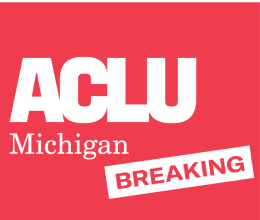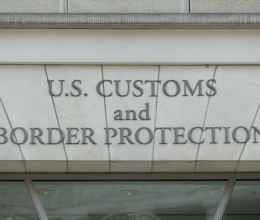
Today, the Arab-American Civil Rights League and the ACLU of Michigan filed an amended complaint continuing their challenge of President Donald Trump’s latest executive order that limits travel from six Muslim majority nations and halts the refugee resettlement program.
"Our position has not changed with the revision of the first executive order on immigration. We still see this as an unconstitutional ban on Muslims entering the United States and we will not cease our challenge because the new order effectively maintains the same illegal policies of the first executive order,” said Rula Aoun, director of the Arab-American Civil Rights League. “We’re proud to be working with an amazing team of attorneys in the fight for justice on behalf of our community.”
Read the ACRL and ACLU full complaint.
The amended complaint was filed on behalf of not only ACRL and the ACLU, but also the Arab American Chamber of Commerce, Arab American and Chaldean Council, Arab American Studies Association, and nine individuals injured by the ban. The class action seeks an order preventing President Trump and numerous federal agencies from enforcing the new travel ban anywhere in the nation.
On March 6, 2017, the President rescinded and replaced the original executive order with a revised directive that goes into effect today. While the new order contains some revisions, the Trump Administration has made clear that its purpose is the same as the original executive order, already rejected by the courts as unconstitutional.
“President Trump’s Muslim Ban 2.0, like the first travel ban, is motivated by hostility to Islam and betrays our country’s fundamental commitment to religious freedom,” said Michael J. Steinberg, legal director of the ACLU of Michigan. “Nobody should be banned from this country because of the way they pray.”
The lawsuit alleges that the President’s executive order is unconstitutional because it is designed to discriminate against Muslim immigrants in violation of the First Amendment right to religious freedom and the Fifth Amendment right to equal protection.
In the days after the President signed the original Muslim ban, sparking angry demonstrations across the country, ACRL filed a lawsuit that was later joined by the ACLU of Michigan on behalf of Muslim immigrants from the banned countries who were either barred or face the threat of being barred from re-entering the U.S. As a result, Judge Victoria Roberts ordered an immediate, permanent and nationwide halt to a portion of the executive order, which prohibited lawful permanent residents from the barred countries from returning to the U.S.
Early this morning, a federal court in Maryland issued an injunction blocking President Trump’s new Muslim ban executive order, just hours after a Hawaii court issued a nationwide injunction in a separate challenge. The American Civil Liberties Union and partner organizations are counsel in the Maryland suit. In both cases, judges ruled that plaintiffs were likely to be able prove that the travel ban was motivated by religious hostility.
Facts sheet: What federal courts have to say about President Trump's Refugee and Muslim Ban.
In addition to attorneys with ACRL and ACLU of Michigan, the plaintiffs in the case are represented by the law firm of Covington & Burling LLP and University of Michigan Law School professors Sam Bagenstos and Margo Schlanger.


